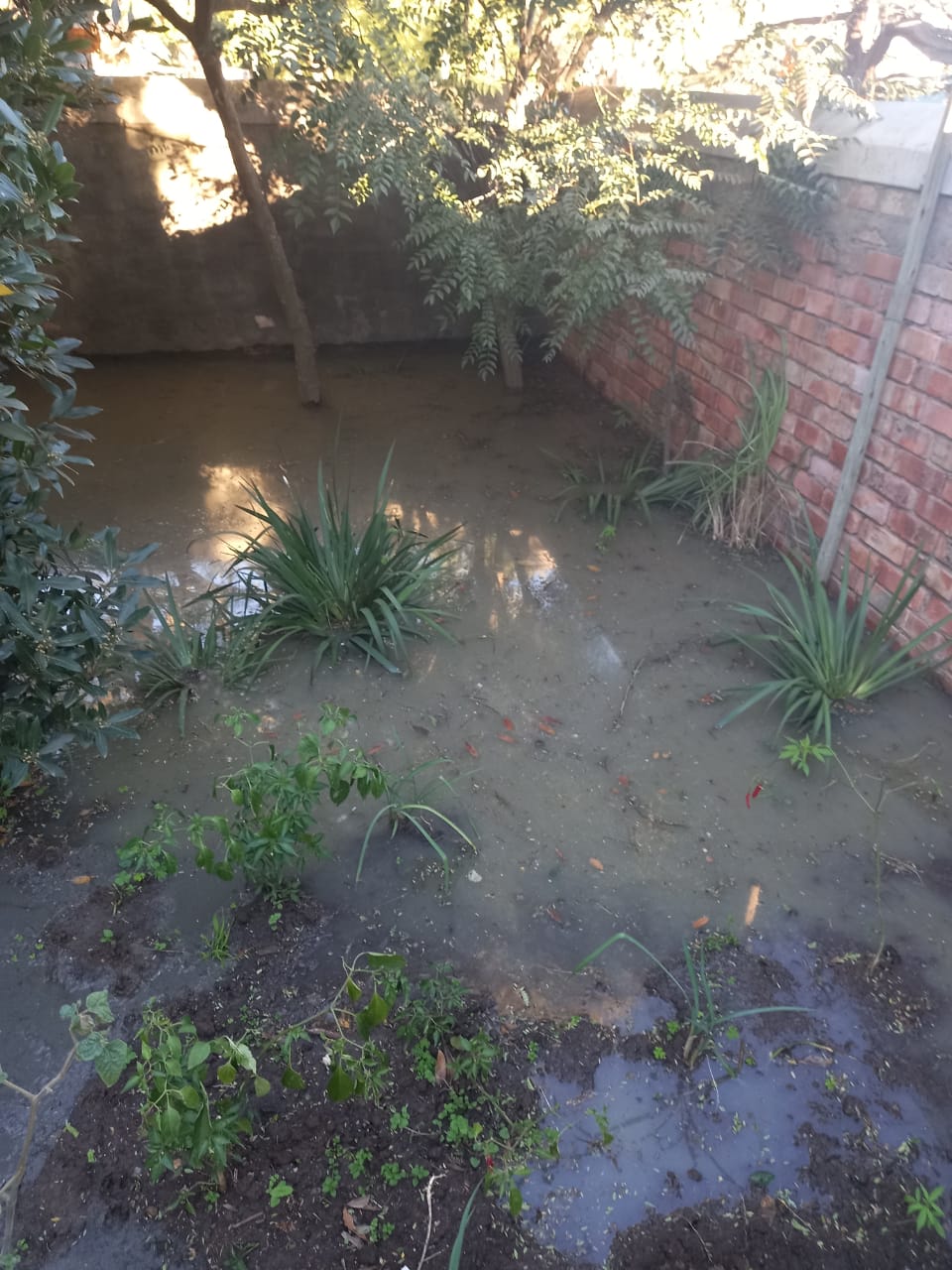By Asiphesona Wonqwelo
Oatlands resident Anne Ashburner woke up recently to find her garden and front yard filled with sewage, which rose rapidly to 15 centimetres high. The sewage leaking into the yard from blocked municipal pipes in a nearby street has been an ongoing problem – Ashburner says it is the sixth time that she and her husband Rick van Heerden have experienced a major sewage flood since they moved in, with the leaking pipe washing the faeces and toilet paper from houses higher up in the neighbourhood into their garden.
“In the old days, the municipality used to come and help us clean up, and put down lime,” (to absorb the sewage sludge left behind) said Ashburner. However, that was not the case this time around, and the family had to dig out all the sludge left behind after the leak themselves. Ashburner says she will now seek help from her private plumber to unblock the municipal manhole when it happens again, and to find a permanent solution to this ongoing matter.
“At the moment the municipality does not even come here, they just clear it in the middle of the intersection. There is a manhole and they did something there,” said Ashburner. She is eager to find a solution to this problem, saying “if necessary, I will pay to have this municipal pipe unblocked because it is not very nice for us to have our yard backed up”. Cleaning up the sewage is not the only problem, as disposing of it is also a problem. “If the municipality does not come and collect it, then I will have to phone someone to come and dispose of it. The last time, we put it in black bags and told them to get rid of it but that was after months,” said Ashburner.
Peter Sturrock, a local retired civil engineer, explains that for sewage pipes to function properly, the pipes should have water flowing through them all the time. When water is off for days, sewage pipes become blocked very easily, because minimal flushing takes place.
“Not only do we have a relatively unstable water system but our sewage is also not in a good state”, says Sturrock. He explained that sometimes a sewage pipe will leak, and the ground around it will become sodden with sewage. If the water pipe next to it springs a leak and also has no water flowing through it because it is a water-off day, then the sewage will leak straight into the water pipe.
He added if refuse was collected on a regular basis, residents would not flush nappies, sanitary pads, and other large objects down their toilets, which block sewage pipes. “When these get into the sewer and there is an irregular water supply, they are just not going to get flushed out, so the sewer gets blocked,” said Sturrock. He proposed a solution to this problem, saying that the municipality could sponsor a social project that would encourage people to use reusable nappies, as it would reduce sewage blockages.
Makhanda environmental activist Helen Holleman, who is the founder of River Rescue, says community members must try not to block sewage pipes with nappies and sanitary pads. “There is a point where you are responsible for the sewage that is in your yard, you have to track where it is coming from,” said Holleman. The sewage is problematic on both ends, as the Makhanda municipality does not clean the pipes fast enough and most of the time they do not have the equipment that is needed to keep the pipes clean, she adds. Holleman says residents also have to be educated about how to keep the sewage system free of large objects.
Grocott’s Mail has reached out to Makana Municipality for comment and will update this story when comment is received.


